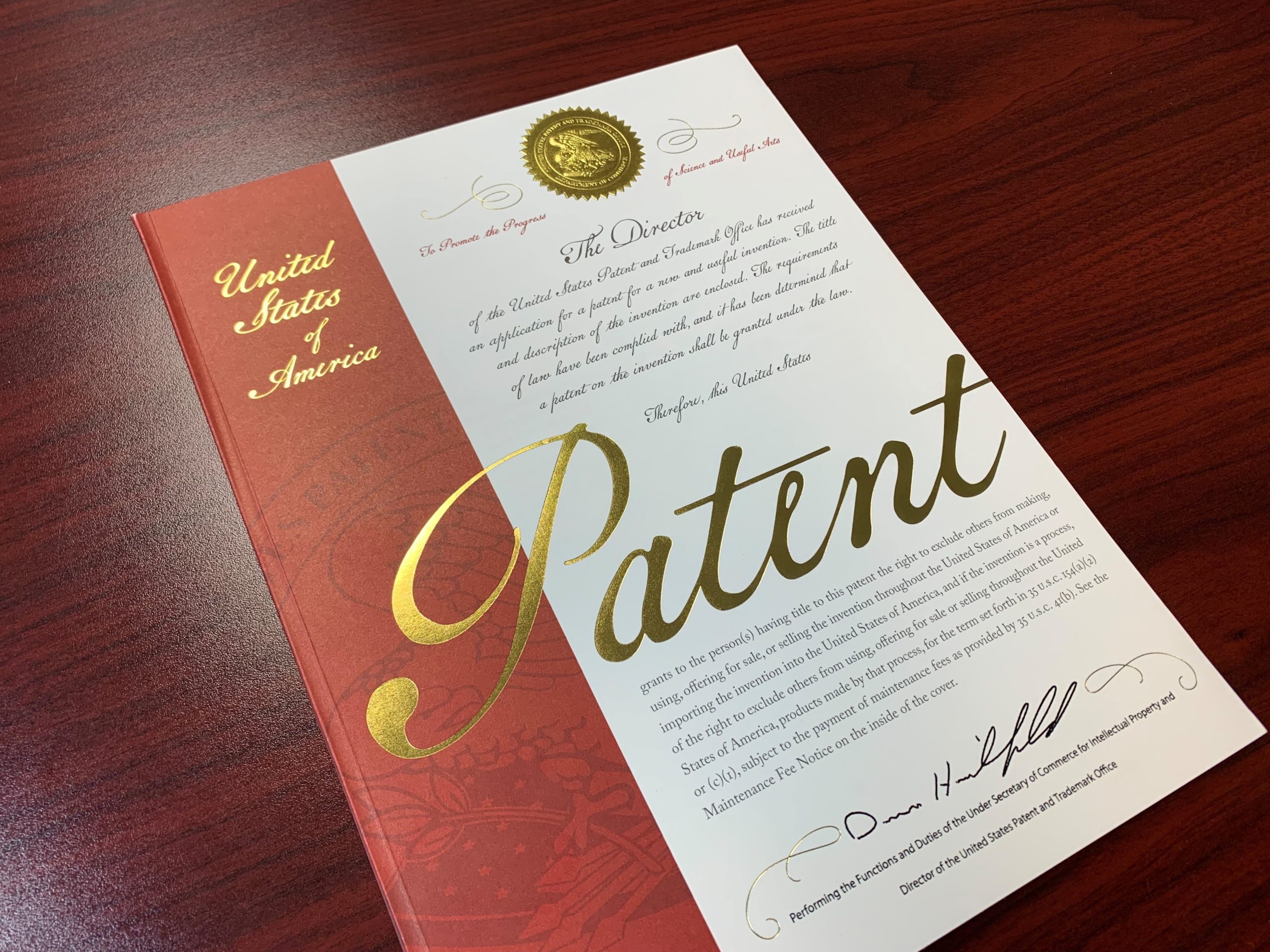
Introducing new product ideas and services is the life blood of many businesses. There are numerous steps along the path to a developing a new product vision. For instance, a product idea must be evaluated for its technical feasibility, manufacturing costs, and potential profit margins. Additionally, as part of the product design process, a company must conduct thorough market research to identify related products and potential competitors for the proposed new product. These steps are absolutely necessary at the product development stage to enable an effective product development. However, while necessary, these steps are not sufficient to effectively launch a final product or service.
Beyond developing new product opportunities that address customer needs, a business must also consider whether a new product or service presents a potential infringement lawsuit due to a third party patent covering the new product or service. A comprehensive patent search and review process prior to a product launch can reveal whether a proposed innovation infringes on such patents. In some circumstances, there may be competitive products that are covered by one or more patents. In other cases, there may be third party patents that are not connected to any existing product in the marketplace. For example, there may be patents that cover an unlaunched product currently under development or the patent owner may have no plans to make the patented invention.
In order to identify such patents, a thorough freedom to operate search of issued patents and pending patent applications must be conducted to allow evaluation of infringement risks. This step should be taken by a company to avoid infringement liability resulting from a new product launch. In the event that the new product idea poses an infringement risk, the freedom to operate search and analysis may provide a roadmap for a revised product strategy to either design around existing patents or engage in licensing negotiations with the patent owner. This proactive approach is necessary to avoid legal pitfalls that can doom the new innovation and secure a smoother market entry.
Businesses that are engaged in the product development process must consider the risk of infringing a patented invention. If any such patent rights are found, the client may wish to do an in-depth infringement analysis to determine whether there is a real risk of infringement. Infringement analyses and non-infringement opinions of closely related patents identified in a freedom to operate search or otherwise are due diligence exercises that inform a client about either present or potential patent infringement risks. A non-infringement opinion can provide cover against claims of willful patent infringement. There are several situations in which an infringement analysis and non-infringement opinion are prudent. Where a freedom to operate search has been performed and related, enforceable patents have been identified. The need for infringement analysis and a non-infringement opinion also commonly arises where a client receives a cease and desist letter asserting that the client is infringing one or more patents. The client, of course, will wish to investigate the merits of the asserted patent infringement claim(s). There are other situations where a non-infringement opinion is a prudent exercise. Another situation in which the infringement analysis may be needed is where a client is seeking to develop a new product or new service, but is aware that a competitor offers a related product or service and has one or more patents related to such product or service. The client would naturally want to know its infringement exposure risk before launching a product or service that directly competes with its rival’s patented offerings. Such due diligence should be stand a standard business analysis step for companies engaging in product development.
The benefits of an infringement analysis include (1) the client becomes well-informed of the infringement risk posed by patents on related goods or services issued to third patent owners, and (2) design around strategies may be formulated to allow the client to move forward with a competing product or service without risking infringement. If it is found that the client’s new product or service offerings do not or likely do not infringe the analyzed patent(s), then a non-infringement opinion can be written that provides a good faith basis for the client to move forward with the product or service with confidence that they likely do not infringe the patents discussed in the non-infringement opinion.
Additionally, the non-infringement opinion can be used as a shield against assertions of willful infringement. Willful infringement requires a finding of recklessness on the part of the infringer, and can result in enhanced monetary damages awards of up to three times the patentee’s actual damages. Recklessness in this instance means that there was a high likelihood that an activity would result in patent infringement. Thus, for example, if a client is aware of a competitor’s patent, but regardless offers a competing product or service, a court may find that the client engaged in willful infringement. However, a competently written non-infringement opinion provides a defense against a claim of willful infringement.
It is important to understand that if an infringement opinion is sought, the client cannot blindly rely upon it as a shield to accusations of infringement. The infringement opinion must have indicia of competency, such as the competency of the practitioner providing the opinion (Is the opinion provided by a patent attorney with experience in infringement matters and relevant patent law?), the completeness of the opinion (Does it include a review of the prosecution history of the patent or patents of concern?), the factual and legal accuracy of the opinion, and reasonableness of the opinion’s conclusions (Does the opinion claim there is no possibility of infringement?). Also, in order to use the infringement opinion as a defense to willful infringement, the client must review the opinion and verify that it is reasonable and competently prepared. Of course, the client must also follow the guidance in the infringement opinion.

An additional benefit of a freedom to operate search is that search results and analysis provides the patent landscape surrounding the new product or service. This knowledge is critical not just for navigating potential infringements, but also for evaluating the patentability of the new product concept. The understanding of the patent landscape allows for evaluation of the novelty and non-obviousness of the new product idea under US patent law. A determination as to whether patent protection is available is also highly valuable information for product development strategy. If there is a good chance of patentability, a patent application may be pursued. Mapping the patent landscape through the freedom to operate analysis ensures that the new product not only avoids infringement of existing patents but also informs the business of its own patent prospects.

Entrepreneurs are constantly innovating and realizing new product ideas. However, as part of their product development process, they need to vet their new product or service for potential conflict with third party patent rights. Infringement analyses are important due diligence tools for keeping clients out of costly litigation situations when they are trying to deliver an innovative product idea to customers. The risk of patent infringement should always be on the minds of product development teams and entrepreneurs when they are contemplating a new product or service offering. Patent litigation is a painstaking and highly expensive process. An ounce of due diligence and patent infringement analysis prevention can avoid massive patent litigation pain.
© 2024 Sierra IP Law, PC. The information provided herein does not constitute legal advice, but merely conveys general information that may be beneficial to the public, and should not be viewed as a substitute for legal consultation in a particular case.

"Mark and William are stellar in the capabilities, work ethic, character, knowledge, responsiveness, and quality of work. Hubby and I are incredibly grateful for them as they've done a phenomenal job working tirelessly over a time span of at least five years on a series of patents for hubby. Grateful that Fresno has such amazing patent attorneys! They're second to none and they never disappoint. Thank you, Mark, William, and your entire team!!"
Linda Guzman

Sierra IP Law, PC - Patents, Trademarks & Copyrights
FRESNO
7030 N. Fruit Ave.
Suite 110
Fresno, CA 93711
(559) 436-3800 | phone
BAKERSFIELD
1925 G. Street
Bakersfield, CA 93301
(661) 200-7724 | phone
SAN LUIS OBISPO
956 Walnut Street, 2nd Floor
San Luis Obispo, CA 93401
(805) 275-0943 | phone
SACRAMENTO
180 Promenade Circle, Suite 300
Sacramento, CA 95834
(916) 209-8525 | phone
MODESTO
1300 10th St., Suite F.
Modesto, CA 95345
(209) 286-0069 | phone
SANTA BARBARA
414 Olive Street
Santa Barbara, CA 93101
(805) 275-0943 | phone
SAN MATEO
1650 Borel Place, Suite 216
San Mateo, CA, CA 94402
(650) 398-1644. | phone
STOCKTON
110 N. San Joaquin St., 2nd Floor
Stockton, CA 95202
(209) 286-0069 | phone
PORTLAND
425 NW 10th Ave., Suite 200
Portland, OR 97209
(503) 343-9983 | phone
TACOMA
1201 Pacific Avenue, Suite 600
Tacoma, WA 98402
(253) 345-1545 | phone
KENNEWICK
1030 N Center Pkwy Suite N196
Kennewick, WA 99336
(509) 255-3442 | phone
2023 Sierra IP Law, PC - Patents, Trademarks & Copyrights - All Rights Reserved - Sitemap Privacy Lawyer Fresno, CA - Trademark Lawyer Modesto CA - Patent Lawyer Bakersfield, CA - Trademark Lawyer Bakersfield, CA - Patent Lawyer San Luis Obispo, CA - Trademark Lawyer San Luis Obispo, CA - Trademark Infringement Lawyer Tacoma WA - Internet Lawyer Bakersfield, CA - Trademark Lawyer Sacramento, CA - Patent Lawyer Sacramento, CA - Trademark Infringement Lawyer Sacrament CA - Patent Lawyer Tacoma WA - Intellectual Property Lawyer Tacoma WA - Trademark lawyer Tacoma WA - Portland Patent Attorney - Santa Barbara Patent Attorney - Santa Barbara Trademark Attorney